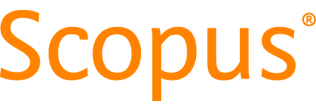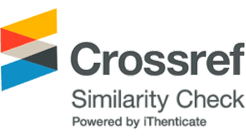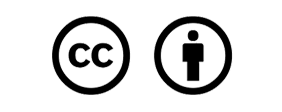Publishing Policies
Ethical Guidelines to Publications of Journal of Korea Water Resources Association
Introduction
Ethical Guidelines are enacted to present ethical standards for the publishers of the Journal of Korea Water Resources Association, that is, the author, the reviewers, and the editors (hereafter referred to the editor-in-chief, the editors, and the associate editors) and contribute to continued advances in the Korea Water Resources Association by maintaining high ethical standards. All members of the Journal of Korea Water Resources Association are required to comply with the Ethical Guidelines in the review and publication processes of the Journal of Korea Water Resources Association in order to secure justice and research ethics in science and technology.
Ethical Guidelines for Authors
1. Authors must secure universality in respect for human rights, adherence to bioethics, and protection of the environment.
2. Authors must precisely elaborate on the research content and its importance, and should not distort the research results.
3. The manuscript must comprehensively include results that are considered to be sufficiently valuable in the academia and arguments supporting such results. If the assertion of the manuscript is similar to an preexisting research paper, the paper must have a new argument which has significantly academic values.
4. Separating similar research contents into several papers and contributions degrades the value of the thesis and therefore should be avoided, if possible.
5. If the author referred to publicly released research data, the author must clarify its source. If the source is from another research paper, unreleased research plan, or data obtained by personal contact, the author must quote the data only after getting consent from the researchers.
6. All documents which are related to the research content or may help its understanding must be included in the reference list. It is also recommended to cite the work of other researchers who contradict the author.
7. The author may criticize the work of other researchers, however, personal condemnation is not allowed.
8. Using the work of other researchers in whole or in part on the manuscript, without citing as references, pertains to plagiarism and therefore is not allowed.
9. Submission of a manuscript which (1) has been published before, or (2) is under consideration for publication anywhere else, is illegal and therefore not allowed. A research paper which was presented at an international symposium but was not asked to transfer the copyright to the publisher may be submitted to Journal of the Korea Water Resources Association, if it neither have been published nor contributed to other journals. In such case, the author must specify the source of the presentation.
10. All the researchers listed for a paper must have made a significant contribution to its content, and all who have made such a contribution must be offered the opportunity to be listed as a co-author, and the main author must get consent from all co-authors for the list of authors. An "Acknowledgements" of people, grants, funds, etc. is recommended.
11. To list whom have not contributed substantially to the research as a co-author, for nonacademic reasons, is immoral and weakens the scholastic authority.
12. The order in which authors are listed, as a general rule, is decided by discussion with other co-authors and it is recommended to let the researchers who have made the most outstanding contributions precede the list. In principle, affiliations of the authors should be listed as the institute where the work has been carried out.
13. Authors wishing to include figures, tables, or text passages that have already been published elsewhere are required to obtain permission from the copyright owner before contributing the paper. Authors must include evidence that such permission has been granted when submitting their research papers and assure that their publication will neither affect contracts nor arise ownership disputes.
14. The author must comply with the regulations of the Journal of Korea Water Resources Association and international best practice while the paper is under review. Also, the author should do his/her best to accommodate the results of the reviewers and the editors with hospitable manners. If the author disagrees to the results, the author must elaborate on his/her grounds and reasons and notify it to the editor in charge.
15. If the editor rejects the paper, the author may challenge the editor's final decision by raising an appeal on a clear and logical basis. However, it is undesirable to raise an emotional appeal with baseless or pregnable arguments.
16. If an error was detected in the research paper after publication, the author must revise it. If it is a serious error, the author must withdraw the publication of the research paper.
Ethical Guidelines for Reviewers
1. The reviewers must review the manuscript on a consistent, fair, and objective basis regardless of the author's gender, age, affiliation, or personal acquaintances, etc. The reviewers must refrain from holding unscientific personal beliefs or assumptions while reviewing the manuscript.
2. The reviewers must keep confidential on the information acquired during the review process. The reviewers should neither release the information to others nor misuse it. Before the journal is published, the reviewers are not allowed to quote the contents of the paper without permission from the author.
3. The reviewers must respect the author as a professional intellectual. The reviewers must refrain from making subjective valuations and offensive expressions, and make efforts in writing objective review responses in an scholastically humble attitude. The reviewers must write their evaluations as gentle as possible, and elaborate on which part and why the paper needs to be supplemented.
4. The reviewers are not recommended to ask the author for further data or elucidation for personal reasons.
5. If a paper has specific issues raised within the context of a previously published research paper and without its citation, the reviewers must inform it to the editor.
6. If a reviewer judges that his/her manuscript review may be biased by interest, or if the paper is not his/her area of expertise, the reviewer must immediately report it to the editor in charge in order to assign a different reviewer. Also, if the reviewers cannot meet the deadline for some reasons, it is recommended that the reviewers inform it to the editor.
Ethical Guidelines for Editors
1. The editor must convey a fair and objective judgement regardless of the author's gender, age, affiliation, or personal acquaintances, etc.
2. Based on the evaluations from the reviewers, the editor must apply consistent standards in the decision of which research paper to reexamine or publish.
3. If the editor lacks knowledge about the field of the research and is difficult to judge the evaluations, he/she may consult an expert in the field.
4. The editor is not allowed to release or misuse the information acquired during the review process. Without agreement of the author, the editor is not allowed to quote the content of the paper before the journal is published.
5. The editor has the responsibility to monitor unethical behaviors of the reviewers. If such behaviors were detected, those should be immediately reported to the editor-in-chief for an investigation and appropriate punishments as necessary.
6. If the review may be biased by interest, the editor must report it to another editor or the editor-in-chief in order to assign a different member.
7. If the editorial board member cannot handle the assigned task promptly for some reasons, it is recommended to report it to the executive office of the Journal of Korea Water Resources Association, the editor in charge, or the editor-in-chief.
8. If the manuscript submission or the review processes were caught for unethical practices or if petitions have sprung up, the editor-in-chief judges the importance of the matter, and if needed, the editor-in-chief must organize an investigation committee with 5 to 10 editors from the relevant field. The editorial board decides the punishment to be given, based on the report compiled by the investigation committee. If it is related to the published research paper, the publication can be cancelled retroactively.
* Other issues undefined by this Code of Ethics most follow the ethics guideline on research by the Korean Association of Academic Societies, and the specific judgements will follow the decisions by the editorial board.
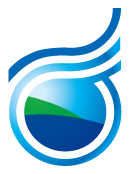

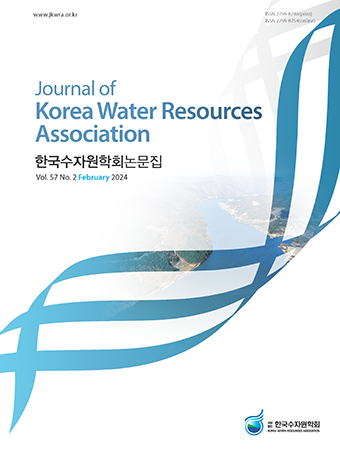 Journal of Korea Water Resources Association
Journal of Korea Water Resources Association
